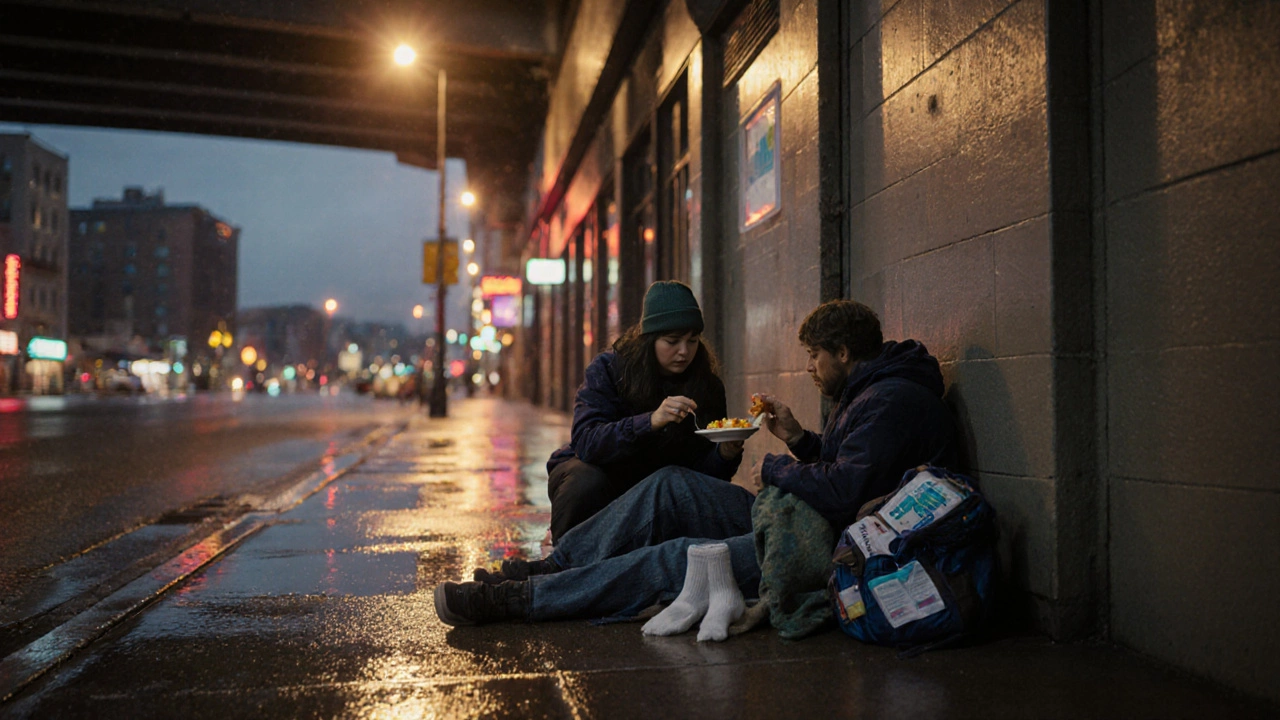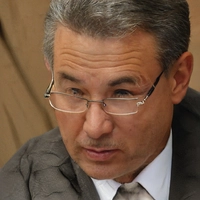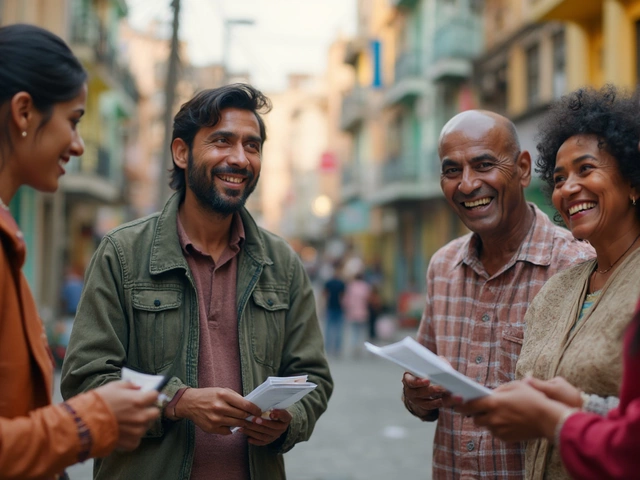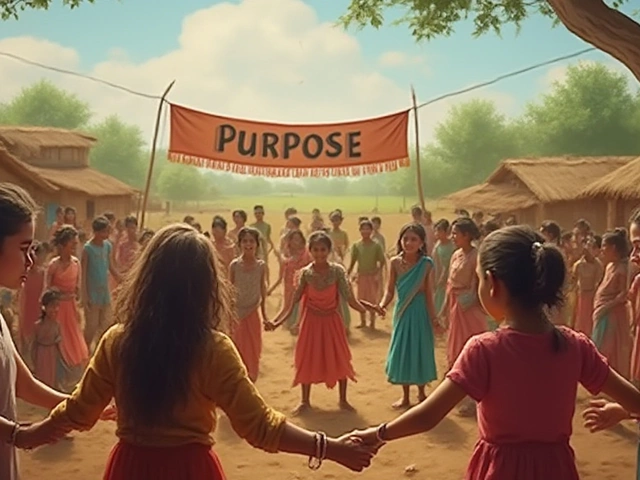Ever wonder what someone actually does all day when they’re called an ‘outreach worker’? It’s not just handing out flyers or showing up at events. Real outreach work is messy, human, and deeply personal - and it’s the backbone of how communities connect with the people who need help the most.
They Don’t Wait for People to Come to Them
Outreach workers don’t sit behind desks waiting for clients to walk in. They go where people are - under bridges, in park benches, at food banks, inside public libraries, even outside late-night convenience stores. In Wellington, you’ll find outreach workers talking to people sleeping in Taranaki Street underpasses, or checking in with families at the Saturday market in Miramar. They show up when others don’t. They don’t wait for someone to call a helpline. They walk up, introduce themselves, and ask: ‘How’s your day going?’This isn’t about charity. It’s about trust. People who are isolated, struggling with mental health, or caught in cycles of poverty don’t trust systems. They’ve been let down before. Outreach workers earn that trust slowly - by showing up week after week, keeping promises, and not pushing agendas.
They’re the First Point of Contact for Crisis
Many people who need housing, mental health care, or addiction support never reach a clinic or social worker on their own. Outreach workers are often the first person they’ve spoken to in days. One worker in Lower Hutt told me about a man who hadn’t showered in three weeks. The outreach worker didn’t push for rehab right away. They brought him clean socks, a warm meal, and sat with him for an hour while he talked about his dog, who had passed away. Two weeks later, he agreed to go to a shelter. That’s not a statistic. That’s a person.Outreach workers are trained to spot signs of trauma, dehydration, malnutrition, or suicidal ideation. They know which local services can help - and which ones are broken. They don’t just hand out numbers. They make calls with you. They sit in waiting rooms. They follow up. They’re the human bridge between broken systems and real needs.
They Build Relationships, Not Reports
Most outreach roles don’t come with fancy titles or big budgets. Many are funded by small community trusts or nonprofit grants. But the work doesn’t show up in spreadsheets. It shows up in quiet moments: a teenager who finally opened up about bullying after three months of weekly coffee meetups. A senior citizen who stopped skipping meals because someone started bringing groceries every Tuesday. A parent who got connected to childcare support because an outreach worker remembered they mentioned their kids were in foster care last month.Outreach workers keep notebooks - not for compliance, but for memory. They write down names, birthdays, pet names, favorite foods, and things that matter. They remember that Maria hates broccoli but loves mangoes. They know that Jamal’s sister is in hospital. They track who’s been missing for a few days - because absence can mean danger.

They Juggle a Dozen Roles at Once
An outreach worker isn’t just one thing. They’re part social worker, part counselor, part advocate, part translator, part navigator, and sometimes, part mediator.- Connector: Linking someone to housing, health services, or legal aid - often navigating complex, slow systems.
- Advocate: Calling agencies on someone’s behalf when they’re too overwhelmed to speak up.
- Interpreter: Helping non-English speakers understand forms, appointments, or rights.
- De-escalator: Calming situations during mental health crises without calling police unless absolutely necessary.
- Community Educator: Teaching local businesses how to respond to people experiencing homelessness with dignity.
They carry backpacks with water, snacks, hygiene kits, blankets, and sometimes even socks - because cold feet make everything worse. They know which pharmacies give free insulin, which shelters have space for pets, and which bus routes run late on weekends.
They Face Real Barriers - and Still Show Up
Outreach work isn’t glamorous. It’s emotionally draining. Workers deal with loss, repeated setbacks, and systemic failures daily. One worker in Porirua said she lost three clients to overdose in six months. Another said he cried in his car after a young woman he’d been helping for a year went back to the streets because there was no safe housing available.Pay is low. Hours are long. Burnout is common. But people stay because they see the difference. They see the woman who got off the streets and now volunteers at the food bank. They see the boy who went from skipping school to enrolling in a trades course because someone believed he could.
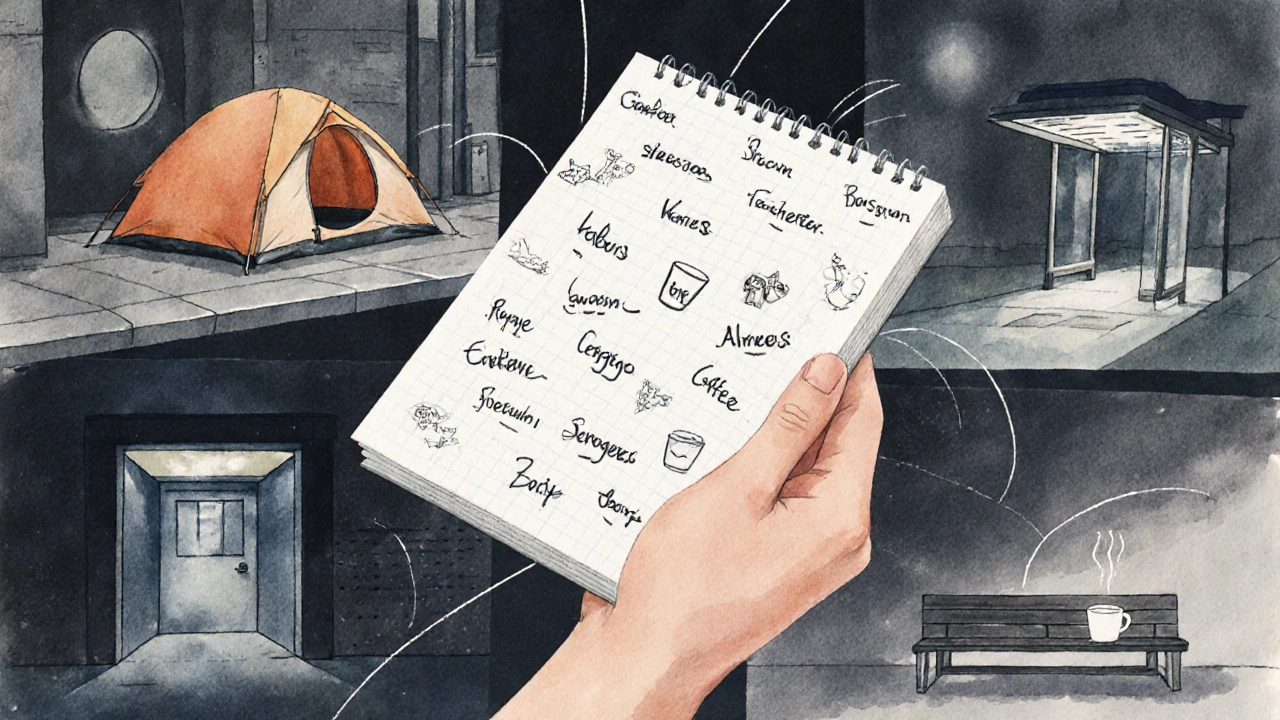
It’s Not About Fixing People - It’s About Listening
A lot of people think outreach is about ‘rescuing’ or ‘saving’ someone. That’s not it. Real outreach is about recognizing someone’s dignity. It’s about asking: ‘What do you need?’ - and then letting them answer. Not pushing them toward a solution. Not judging their choices. Just being there.One man in Newtown told an outreach worker he didn’t want to go to a shelter because he didn’t like the rules. The worker didn’t argue. They brought him a tent, a sleeping bag, and checked in every few days. Six months later, he asked for help applying for a flat. He didn’t need to be ‘fixed.’ He just needed someone to not look away.
How to Know If Outreach Work Is Right for You
If you’re wondering whether you could do this kind of work, ask yourself:- Can you sit in silence without trying to fix things?
- Do you care more about consistency than results?
- Can you handle disappointment without giving up?
- Do you believe people deserve respect even when they’re at their worst?
If the answer is yes - then you’re already closer than most. Training helps. Certifications in mental health first aid or trauma-informed care matter. But what matters more is your willingness to show up, again and again, without expecting anything in return.
Community Outreach Isn’t a Job - It’s a Commitment
People in outreach don’t wear badges that say ‘hero.’ They don’t get parades. But they’re the reason some people survive another day. They’re the reason someone remembers they’re still human. In a world that often ignores the invisible, they make sure no one disappears completely.If you’ve ever wondered what a person in outreach does - now you know. It’s not about grand gestures. It’s about showing up. Again. And again. And again.
Do outreach workers get paid?
Yes, but pay varies widely. Most outreach roles are funded by nonprofits, local councils, or government grants. Entry-level positions in New Zealand typically pay between $50,000 and $65,000 per year. Experienced workers with qualifications in social work or mental health can earn up to $80,000. Many roles are part-time or fixed-term contracts, and benefits like superannuation or sick leave depend on the employer.
What qualifications do you need to be an outreach worker?
There’s no single path. Many outreach workers start with a certificate in community services, social work, or mental health first aid. Some have diplomas or degrees in social work or psychology. But experience often matters more than paperwork. Volunteering with homeless services, youth groups, or refugee support programs gives you real skills. Employers look for empathy, reliability, and the ability to stay calm under pressure.
Can anyone become an outreach worker?
You don’t need a degree to start helping - but you do need the right mindset. Outreach isn’t for people who want quick fixes or recognition. It’s for those who understand that change happens slowly, and that listening is more powerful than advising. Many organizations welcome volunteers with lived experience - people who’ve been through homelessness, addiction, or mental health struggles themselves. Their insight is invaluable.
Do outreach workers work with police or social services?
Sometimes, but not always. Outreach workers often collaborate with social workers, mental health teams, and housing agencies. Police involvement is usually a last resort - especially in trauma-informed programs. Many outreach teams are trained to de-escalate situations without calling law enforcement. In Wellington, some outreach groups partner with mobile crisis teams that include nurses and peer support workers, not officers.
How do you find outreach jobs in New Zealand?
Check job boards like Seek, Trade Me Jobs, and the websites of major NGOs like the Salvation Army, St Vincent de Paul, or the Mental Health Foundation. Local councils often list outreach roles under community services. Volunteering first is a great way to get noticed. Many paid positions come from within volunteer networks - relationships matter more than resumes.
